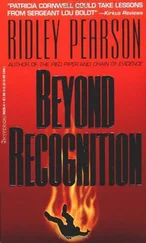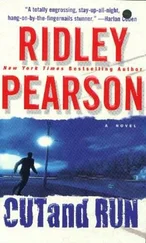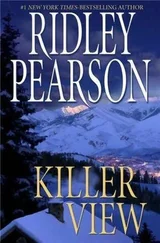“They talked so quietly I’m not sure they could hear each other half the time.”
“That’s something,” Knox says.
“That’s bullshit. Coulda been pillow talk, coulda been nukes. Who knows?”
“But they knew each other?”
“Couldn’t tell,” Dulwich answers. “I would say no. Too many uncomfortable pauses between them. Leaning back, studying the other person. Nice rack on the tall one, by the way.”
“Focus,” Knox says. For once, they’ve reversed roles. “Ethnicity?”
“Indian? Pakistani?”
“Working for Sonia?”
“You two on a first name basis, huh?”
“Maybe we are.”
“They do not know each other. Not well, if at all.”
“Was Sonia conducting an interview?”
“Maybe. Could be. She definitely took notes. But the way it looked, that wouldn’t be my first guess.”
“The tall one was spying on Grace. Rescues her at just the right moment. Meets with Sonia the next day for lunch.”
“So maybe they do know each other,” Dulwich concedes.
“Or maybe she’s freelance. Someone Sonia hired, someone a friend recommended. Poses the question how she knew about Grace, how she knew where to find her.”
“Grace has been making some noise,” Dulwich says. He burps loudly. “Meal so nice you enjoy it twice.” Dulwich laughs at his own joke. Knox does not.
Dulwich limps straight ahead at the next intersection where the crossroad spans a canal to the left. Knox crosses the bridge, moving away from the woman, picking up his pace to catch up and stay even with her while across the canal. Natural barriers create mental barriers; she won’t be looking for anyone over where he is. Knox quickly overtakes Dulwich, but has to run hard as the woman in the scarf turns right, away from the water, away from downtown. Knox has guessed wrong. He crosses back at the next bridge and staircases his way through the neighborhood’s blocks trying to intercept her, but he has lost her.
He finds himself in a regimented, neatly planned residential zone of tree-lined narrow streets with endless four-story brick buildings, some with retail at street level. It’s a massive housing project done with class. Block after block. Kilometer after kilometer. A dizzying place where it’s easy to get lost because of the architectural similarity. An easy place to stand out. Small shops and banks are all he sees. No supermarkets or car dealers or theaters. No hotels or shopping malls.
No people.
The place appears inhabited by only cars and bicycles. The machines have taken over. It’s a back lot for a science fiction film. It’s the Blade Runner no one ever saw coming. It’s suburbia.
He spots a tall woman at a distance; she’s wearing the same color head scarf as the woman who’d dined with Sonia. She’s walking away from him. He follows, careful to stay so far behind that he’s still not sure he has the right woman. But anyone who can surprise Grace Chu in a crowd has his respect, is a formidable mark. He’s not going to push it. Holds back several blocks trusting his good fortune; he found her once, he can find her again. He’s a dog on a scent, a spy behind enemy lines—he lives for this shit. He can see, hear, smell and taste everything, everywhere: the couple coming out of the building a block behind him; the truck about to turn onto his street; the taste of winter in the air. Realizes why he loves this work, why import/export is a waste of his talents. It’s like the ghost of Dulwich whispering over his shoulder. He thinks about Tommy. Feels the weight of the burden, regrets both their situations, is angry at his parents for dying on him. He’s something of a mess when, a few dozen blocks later, he sees an oasis rise out of all the brick.
Frederik Hendrikplantsoen—Frederik Hendrik Park—rises as a forest to his right and across the wide boulevard before him. He has instinctively closed in on her, following now by a block, and on the opposite sidewalk as she slows nearly imperceptibly. They’ve arrived at her destination; she has telegraphed this unintentionally but clearly.
It gives him the chance to get the jump on her. He doesn’t doubt his instinct. Advantage is a gift given in glimpses. With no time to consider pros or cons, Knox has only to choose a side of the boulevard that divides the park. He can be wrong and he’s still okay; if he goes right and she goes left, a park is a place where a person takes her time; he’ll have a second chance.
He crosses the street and enters the park’s manicured lawns and gardens. He loses sight of the woman immediately. The smell of car exhaust is traded for loamy earth and sap. This is the part of his import travel he misses: the jungles, deserts and beaches. He walks a route that bisects the green ahead. Sensing more such space, he navigates to the right and reaches and crosses an asphalt path, moving deeper into the grounds. Parks himself on a bench with a view of the next path, realizing it leads back to the street. A man occupies a bench twenty yards up the same path. A woman runner approaches, then passes him.
Knox waits with his ankles crossed on outstretched legs, his shoulders back—a man at rest. In the periphery of his eyesight he sees the woman in the scarf coming up the path toward him. He sighs and closes his eyes. When he opens them again, she’s nearly upon him. Then passing him. For all his apparent calm, his chest is tight behind a heart twice its normal size. The man to his left comes off the bench, a cell phone pressed to his ear.
Knox has to judge the coincidence of the timing. It feels like a baton pass, the runner in front gaining speed to match the runner approaching. He doesn’t stare, doesn’t study. Closes his eyes again. Another deep breath.
He’s grabbed from behind. Two of them, both going for an arm. Knox rocks forward slamming both men into the back of the bench. The grip holding his left arm lessens; he breaks free, swings a fist into the throat of the man on his right.
He sees the uniform too late to pull the punch. Slugs the patrolman off him and into a choking, coughing slurry. Throws his hands up, but again too late. Takes a club strike to the side of his head that sends him into a purple fog. Manages to keep his arms overhead as he spins to face them from the other side of the bench.
“Okay! Okay!” Knox says in English.
The one patrolman has recovered. The other is ready to punish him again, the club held high, but his red-faced partner waves him off.
“You will come with us,” the patrolman croaks out. He spits into the grass and stares at his phlegm, looking for blood.
They’re standing too close together. Another few feet apart and it would make things much more difficult. Knox can take them out. Debates doing just that. But what are they doing here in the first place, and why the rough treatment? Why the surprise? They aren’t after an indigent, they’re after Knox in particular.
Knox jerks his head to the right: no one there. But he’s thinking: the guy on the bench; the cell phone; the arrival of two uniforms.
His mark has a meeting with the police. Knox is unwanted. They can’t hold him; they have no real charges against him. Though that won’t stop them if they want to. Advantage is a gift given in impulses. He lets this one pass.
He interweaves his fingers atop his head. “Okay, okay,” he says again.
—
THE INTERVIEW ROOM OWNSa predictable blandness. Vanilla cream walls, a no-smoking poster burned by a match on the lower corner, a single table, two chairs, one bolted to the floor. A compact fluorescent bulb fails to provide enough reading light, like a hotel bedside lamp. The sergeant adjusts a pair of supermarket reading glasses to read Knox’s exploding passport. It has gotten wet too many times, dried in the sun, stuffed into tight pockets. He has promised himself to renew it, not because of its condition but because there is barely space enough left on any page for a new stamp, a quality that catches the eye of customs officers. They study his passport like it’s a piece of archaeology. The sergeant does the same, flipping pages, adjusting the orientation in order to read a date or location. He looks over the top of his glasses at Knox. Suspicious? Impressed? Jealous? It’s hard to tell.
Читать дальше












